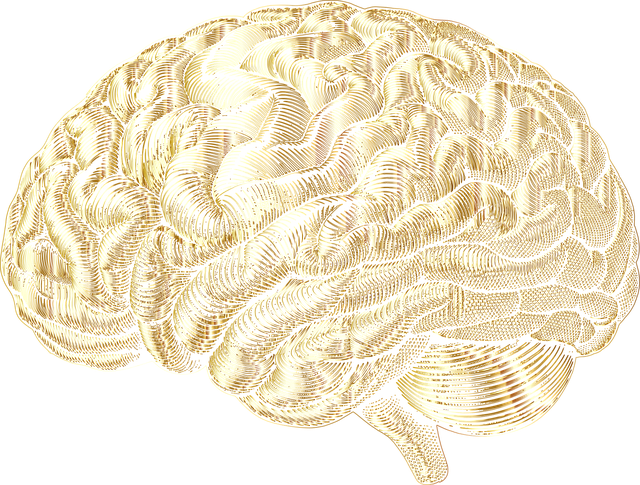Emotional Intelligence (EI) is a key component in managing mental health, particularly for individuals with conditions like Littleton Panic Disorder and Anxiety Attacks. Through EI development, targeted therapy focuses on Mind Over Matter, Compassion Cultivation, Positive Thinking, and crisis intervention to reduce anxiety symptoms and promote resilience. Social skills training and mindfulness practices empower individuals to navigate emotional challenges effectively, leading to improved well-being and reduced mental illness stigma. Specialized therapy for Littleton Panic Disorder incorporates tailored coping skills development, sleep hygiene, exercise, and diet to support long-term recovery while fostering cultural competency among healthcare providers.
Emotional intelligence (EI) is a powerful tool for navigating life’s challenges, especially in managing mental health issues like Littleton Panic Disorder and anxiety attacks. This article delves into the profound impact of EI on overall well-being, exploring its connection with anxiety disorders and offering practical strategies for therapists and individuals seeking to enhance their emotional resilience. Discover how cultivating EI can empower you to overcome anxiety attacks and lead a more fulfilling life through effective therapy practices and self-care routines.
- Understanding Emotional Intelligence and its Impact on Mental Health
- Uncovering the Connection Between Littleton Panic Disorder and Emotional Intelligence
- Strategies to Build Emotional Intelligence for Effective Therapy
- Practicing Mindfulness and Self-Care for Anxiety Attack Management
Understanding Emotional Intelligence and its Impact on Mental Health

Emotional intelligence (EI) is a key component to overall well-being and mental health. It involves recognizing, understanding, and managing one’s own emotions, as well as empathizing with and responding appropriately to the emotions of others. For individuals dealing with conditions like Littleton Panic Disorder and Anxiety Attacks, developing emotional intelligence can be transformative. By employing Mind Over Matter principles and Compassion Cultivation Practices, individuals can cultivate a deeper awareness of their feelings and learn to respond rather than react to stressful situations.
This shift in perspective fosters Positive Thinking, which has been shown to significantly reduce symptoms of anxiety and depression. Through therapy that focuses on these strategies, individuals can gain the tools needed to navigate emotional landscapes more effectively, leading to improved mental health outcomes.
Uncovering the Connection Between Littleton Panic Disorder and Emotional Intelligence

The connection between Littleton Panic Disorder and emotional intelligence is a profound one, highlighting the intricate relationship between mental health and interpersonal abilities. Individuals grappling with panic disorder often experience intense anxiety attacks, which can significantly impact their daily lives. Through therapy, particularly focusing on anxiety attacks treatment, these individuals can unlock hidden strengths and develop inner resilience. This process involves delving into the root causes of their fears and learning effective coping mechanisms, fostering better emotional regulation.
Social skills training becomes a crucial element in this journey, enabling them to navigate social interactions with more confidence. By cultivating positive thinking and strengthening emotional intelligence, individuals with panic disorder can transform their responses to stressful situations. This holistic approach to mental health not only helps manage symptoms but also promotes overall well-being, fostering a sense of control and empowerment.
Strategies to Build Emotional Intelligence for Effective Therapy

Building emotional intelligence (EI) is a cornerstone for effective therapy, especially when addressing conditions like Littleton Panic Disorder and Anxiety Attacks. Therapists who foster their own EI skills can provide more nuanced care to their clients. One key strategy involves practicing active listening, allowing individuals to express their feelings and thoughts without judgment. This not only enhances communication but also helps clients feel understood and validated, crucial factors in building trust and rapport.
Additionally, incorporating Emotional Well-being Promotion Techniques tailored for crisis intervention can significantly aid in managing anxiety. Techniques such as mindfulness exercises and breathing strategies teach individuals to respond to distressing emotions rather than reacting impulsively. Moreover, Crisis Intervention Guidance focused on reframing negative thoughts can help clients challenge their anxious beliefs and build resilience. Ultimately, these practices not only support therapy outcomes but also serve as Confidence Boosting tools for those navigating anxiety-related challenges.
Practicing Mindfulness and Self-Care for Anxiety Attack Management

Practicing mindfulness and self-care is a powerful tool for managing anxiety attacks, especially for individuals dealing with conditions like Littleton Panic Disorder. Mindfulness techniques help individuals focus on the present moment, calming their mind and reducing the intensity of panic symptoms. Through regular meditation or deep breathing exercises, one can learn to recognize and accept anxious thoughts without judgment, gradually desensitizing themselves to triggers.
Self-care plays a significant role in anxiety attack management by providing much-needed support for one’s mental health. This includes prioritizing sleep hygiene, engaging in regular physical activity, and maintaining a balanced diet. Additionally, seeking professional help from healthcare providers with expertise in Littleton Panic Disorder therapy is essential. They can offer coping skills development tailored to individual needs, addressing underlying causes and promoting long-term recovery while also contributing to Mental Illness Stigma Reduction Efforts and enhancing Healthcare Provider Cultural Competency Training.
Emotional intelligence (EI) plays a pivotal role in managing mental health, especially conditions like Littleton Panic Disorder and anxiety attacks. By understanding EI and implementing strategies to enhance it, individuals can significantly improve their therapeutic outcomes. The article has explored the connection between EI and mental well-being, offering practical tips for building emotional intelligence through mindfulness practices and self-care techniques. These tools are essential for navigating anxiety attacks and managing panic disorder symptoms, ultimately fostering a healthier and more balanced life.












